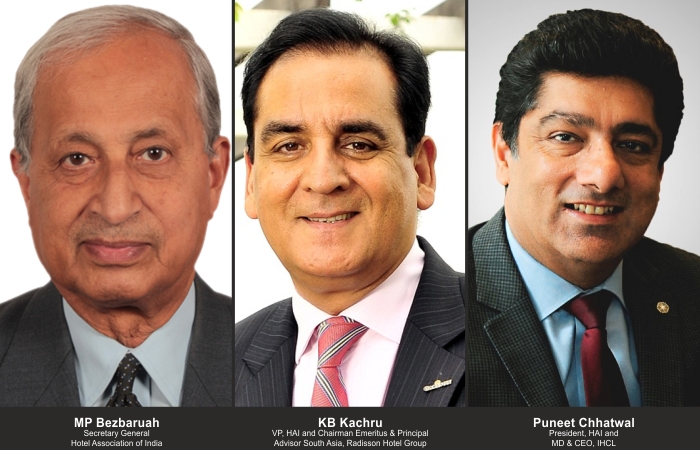Hotel Association of India (HAI) has come out with a position paper titled ‘Indian Hospitality – An embodiment of Atmanirbhar Bharat’, which details the initiatives and contributions of the sector in making it self-reliant. The paper also defines the role that hospitality plays in aiding livelihoods and serves as a symbol of national heritage.
Nisha Verma
The position paper mentions that for India, global recognition has come by practising the age-old Indian tradition of ‘AtithiDevoBhava’ and by using local resources, be it money, material, machine or manpower. “The Indian industry deploys more than 90 per cent local resources, making it an embodiment of an Atmanirbhar Bharat,” states the report. The salient points of the paper are:
Self-reliance: The industry aims to increase its focus on local sourcing of ingredients/components in its key pillars of food & beverage, infrastructure and engineering equipment. From about 65% in 2000, there has been a consistent effort to increase the extent of local sourcing which rose to about 87% in 2020. The industry aspires to increase this to 95% or more by the year 2025.
Epitome of national prestige: Indian hotels have played host to heads of state, celebrities, senior officials, industrialists and entrepreneurs; facilitated large and prestigious national and international conventions and events to provide a safe and comfortable abode for people during disasters. Hotels showcase Indian architecture and the traditional way of life; promote Indian heritage, textiles, cuisines, handicrafts; and act as wellness centres.
Providing local opportunities: The Indian hospitality sector employs close to 4.5 crore people and provides livelihood to many more by employing unskilled, semi-skilled and skilled workers. From import subsidisation to vendor development, creation of green supply chains and minimising the carbon footprint, the hotel industry does it all.
According to the position paper, while the procurement of local products and resources as a percentage of total utilisation stood at 80 per cent for toiletries and cosmetics, and at 60 per cent for other categories such as electronics and gadgets, mechanical equipment, elevators, etc., in year 2000, these numbers stand at 95 per cent and 90 per cent in 2020, expected to increase to 99 per cent and anywhere between 95-100 per cent by year 2025.
MP Bezbaruah, Secretary General, Hotel Association of India
Hotels are perhaps one of the few industries that can actually transform and aid the fostering of the Prime Minister’s vision of Atmanirbhar Bharat. The industry in India has come a long way from dependency on imports to driving greater procurement locally. Competencies have increased, the use of technology has gone up and India can well be proud of the way it has evolved.
KB Kachru, VP, HAI and Chairman Emeritus & Principal Advisor South Asia, Radisson Hotel Group
Be it imbibing and promoting the cultural abundance of the country or the utilisation of local resources, we have always strived to work together in harmony with our surroundings and support the lives of communities that we operate in. We as an industry are a role model to those who are looking for a roadmap to begin their journey towards ‘Atmanirbhar Bharat’.
Puneet Chhatwal, President, HAI and MD & CEO, IHCL
It is the Indian hospitality that attracts luxury travellers. As the industry plays host to travellers from across the globe, it brings international best practices to the country as well. The sector contributes over Rs10,000 crore to the exchequer every year. There is a very healthy hospitality ecosystem deploying more than 90% of local resources. The industry also promotes gender diversity and equal opportunity.
 TravTalk India Online Magazine
TravTalk India Online Magazine





